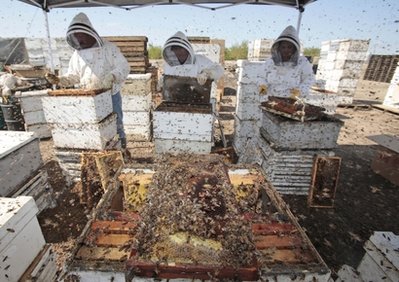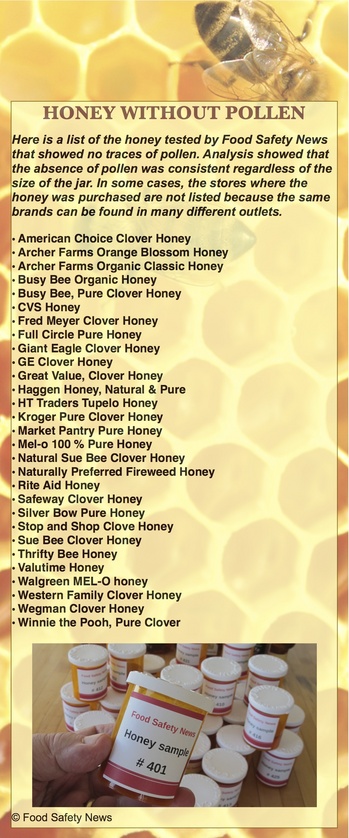What kills the bees will kill you too. Pesticides and all the other toxic chemicals that poison the food supply have been proven to cause Alzheimer’s disease, Multiple Sclerosis, Parkinson’s and cancer in animals.
This is one of many reasons why I eat organic food.
Flashback: Organic Bees Surviving Colony Collapse Disorder (CCD)
New Study Shows Honeybees’ Pollen And Hives Laden With Pesticides.

In this photo taken Monday, March 22, 2010, Workers, from left, Johan Du Preez, Susan Dupreez and Rouxle Crafford clear honey from dead bee hives at a bee farm east of Merced, Calif. The mysterious 4-year-old crisis of disappearing honeybees is deepening. A quick federal survey indicates a heavy bee die-off this winter, while a new study shows honeybees’ pollen and hives laden with pesticides. Two federal agencies along with regulators in California and Canada are scrambling to figure out what is behind this relatively recent threat, ordering new research on pesticides already in use.
(AP)
MERCED, Calif. – The mysterious 4-year-old crisis of disappearing honeybees is deepening. A quick federal survey indicates a heavy bee die-off this winter, while a new study shows honeybees’ pollen and hives laden with pesticides.
Two federal agencies along with regulators in California and Canada are scrambling to figure out what is behind this relatively recent threat, ordering new research on pesticides used in fields and orchards. Federal courts are even weighing in this month, ruling that the U.S. Environmental Protection Agency overlooked a requirement when allowing a pesticide on the market.
And on Thursday, chemists at a scientific conference in San Francisco will tackle the issue of chemicals and dwindling bees in response to the new study.
Scientists are concerned because of the vital role bees play in our food supply. About one-third of the human diet is from plants that require pollination from honeybees, which means everything from apples to zucchini.
Read moreHeavy Honeybee Die-Off Continues; New Study Shows Pollen And Hives Laden With Pesticides



